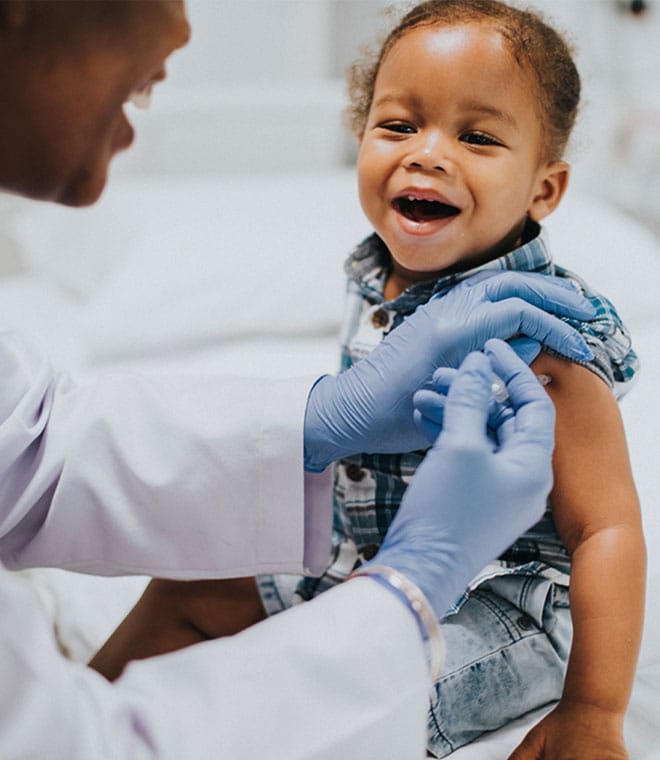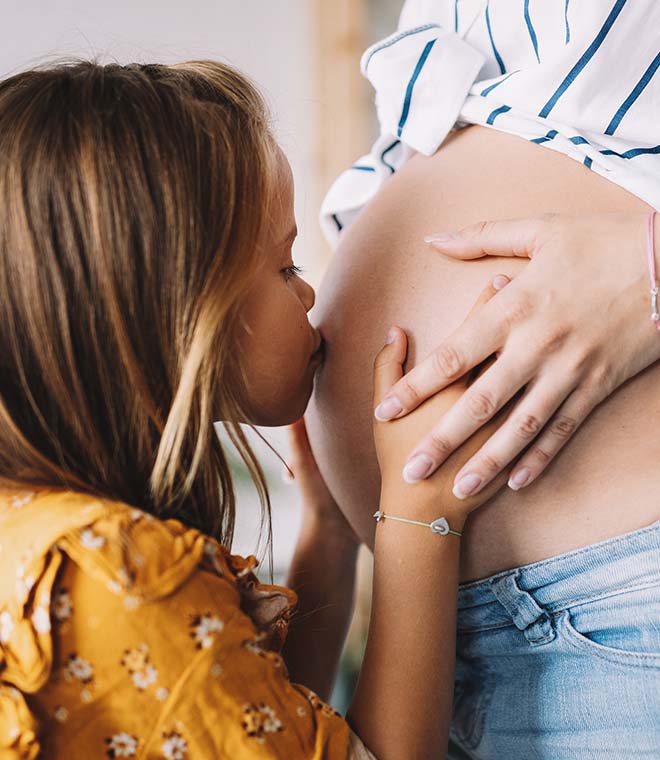Community Stories
Every mom deserves a chance at a healthy pregnancy
Jun 22, 2022 • 8 min
When Jodi, an expectant mom living in Florida, started adding up the costs of pregnancy, she felt overwhelmed.
“I’m on a very tight budget, so it would set me back if I had to pay the $40 for prenatal vitamins at the store,” says Jodi, who was already worried about covering basic needs, such as making rent and buying groceries. “I probably wouldn’t have taken prenatals. I’m trying to give every chance that I can for this baby to be healthy and do everything right.”
While giving women like Jodi access to maternal healthcare and healthy foods should be easy in a wealthy country like the United States, she is not the only woman facing such a dilemma. Far from it. Women living in underserved communities across the country find themselves in both maternity care and food deserts—places where women and families face barriers to prenatal care and education, as well as grocery stores.
- 54% of counties across the U.S. are limited in the care they can provide, impacting 7 million women. Among those areas, 35% are considered “maternity care deserts,” according to a 2020 report from the March of Dimes.
- In the U.S., a total of 2.2 million women live in counties without hospitals offering obstetric care, birth centers and obstetric providers
Access to comprehensive maternal healthcare—including checkups, ultrasounds, counseling and a diet that includes prenatal multivitamins and nutritious foods—is essential to helping ensure a healthy pregnancy. Prenatal vitamins can help prevent anemia in pregnant women, support the developing immune system, and decrease the risk of neural tube defects (NTD) and small-for-gestational age infants.
That’s why Walgreens and Vitamin Angels, a nonprofit dedicated to helping women and children in underserved communities gain access to essential multivitamins and nutritional education, have worked together since 2013 to ensure all moms and kids have a chance at a healthy future. Through in-store fundraising campaigns and the donation of 1% of vitamins sales at Walgreens to Vitamin Angels and its partners, Walgreens and Vitamin Angels have reached nearly 350 million at-risk pregnant women, new mothers and children across the globe.*
Jodi is one of them. “It feels great to know that I can get the vitamins and anything else that I need,” says Jodi, who connected with Vitamin Angels in 2017. “My baby’s health is important because it determines what happens next in their life. If they don’t have their health, then it’ll be hard to pursue their dreams.”
The high cost of poverty
Lack of access to care is only one risk factor increasing poor maternal health outcomes. Socioeconomic disparities have a dramatic impact as well. In 2018, Medicaid covered the delivery care costs of more than 1.6 million pregnant women, or 42% of births in the U.S., according to a 2020 March of Dimes report. A 2018 study conducted by Harvard University reported that 65% of women on Medicaid or the Children’s Health Insurance Program experienced at least a one-month gap in their health insurance.
Without insurance coverage, the costs faced by a pregnant woman, including paying for prenatal vitamins, can be overwhelming. Just look at this estimated breakdown for expectant mothers, based on data from Northwestern Mutual, a financial planning service.
- A hospital stay can cost as much as $40,000 for some deliveries
- Prenatal care visits can typically cost between $100 and $200 per appointment
- Maternity clothes can run an expectant mother as much as $300
- Prenatal vitamins run between $12 and $150 per bottle
That doesn’t even include the cost of caring for a baby, such as diapers, formula, childcare, etc., which can multiply at an exponential rate. This kind of tally of expenses was certainly a concern for Jodi.
Receiving free multivitamins not only helped Jodi with an essential part of her prenatal care but also relieved pressures in other parts of her life. “I am free to focus on keeping my bills paid because I know I don't have to spend that money on [vitamins and minerals],” says Jodi. “It’s relaxing knowing I have one less thing to worry about.”
Connecting with community
Reaching women like Jodi is an essential part of the mission of Vitamin Angels, which works with over 2,000 program partners to reach millions of women across the country and abroad, connecting them with resources and education related to prenatal nutrition. That expansive network also includes thousands of Walgreens patients and customers across dozens of communities, which is one reason the partnership remains strong.
“Prenatal vitamins are a vital part of the services that we offer” says Cassandra, the program manager of one of Vitamin Angels’ program partners in Ohio.
“We're seeing moms in the first couple of weeks of them finding out they're pregnant and with the OB-GYN doctors, it may take a few weeks or even a month to get in. Getting those prenatal vitamins on board as soon as possible assists in them having a healthy, safe pregnancy.”
Working with program partners across the country, Vitamin Angels helps support both the individual organizations and the communities at large. Program partners, like the one in Ohio, see the benefits of collaborating, “[it enables us] to grow, which has allowed us to meet our clients’ needs. It’s super important to have a village because no one person has all the answers. If we have a village, then everyone can support each other.”
Together, Walgreens and Vitamin Angels are building villages of support by empowering expectant mothers and changing the lives of millions by ensuring every woman, regardless of income, zip code or history, has a chance at having a healthy pregnancy and a brighter future.
*From 1/1/21-12/31/23, Walgreens will donate 1% of participating products' retail sales to Vitamin Angels. For details, visit Walgreens.com/VitaminAngels.



